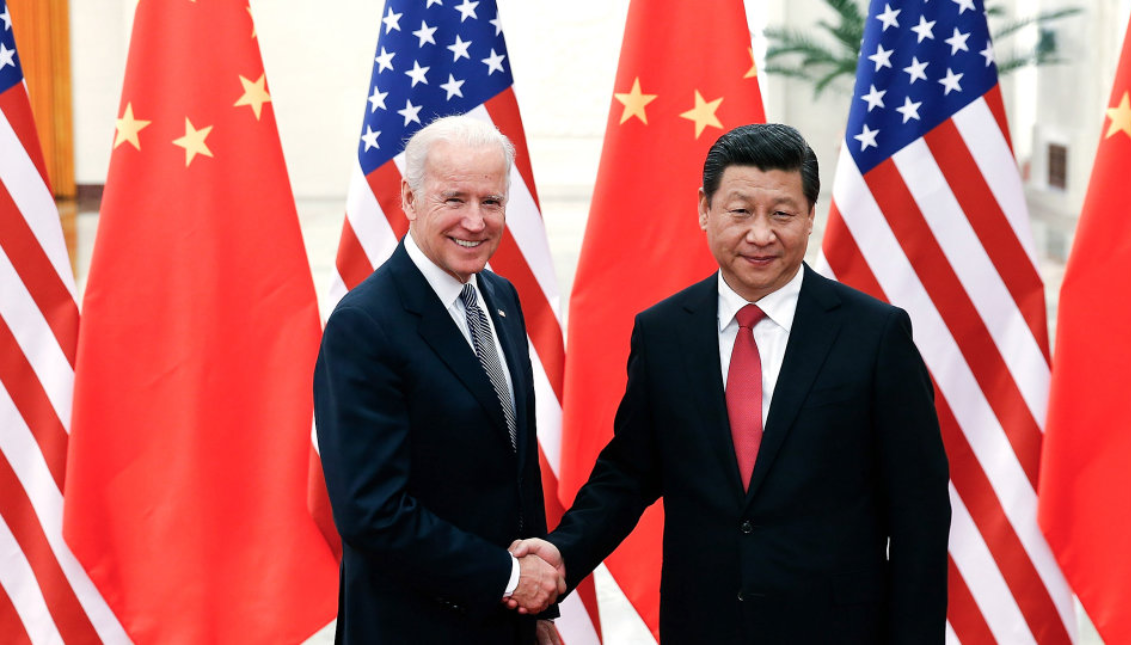
Biden begins charting his own path with China’s Xi Jingping
The two leaders held their first call since Biden took office on Feb. 10.
In his first official call with China since he took office, President Joe Biden spoke with President Xi Jinping for two hours late Wednesday evening, Feb. 10.
On Thursday, Feb. 11, Biden met with a bipartisan group of senators to discuss infrastructure in the Oval Office and informed them of the call.
I spoke today with President Xi to offer good wishes to the Chinese people for Lunar New Year. I also shared concerns about Beijing’s economic practices, human rights abuses, and coercion of Taiwan. I told him I will work with China when it benefits the American people.
— President Biden (@POTUS) February 11, 2021
Biden told the group that it was a good conversation and that he knows Xi well and spent a lot of time with him throughout his years as vice president. Although tensions are currently escalating between the U.S. and China, an honest and open dialogue needed to take place.
10 years ago this summer, @JoeBiden traveled to China for the first serious meetings of any world leader with then-Vice President Xi Jinping. Tonight they spoke for the first time as presidents. pic.twitter.com/hmSghd3mOo
— Mike Memoli (@mikememoli) February 11, 2021
The introductory call between the leaders of the world’s two largest economies touched upon many topics, including climate change, nuclear proliferations, economic and military issues, and potential areas of cooperation between the nations.
Biden made a point to bring up the growing concerns about China’s alarming use of technology, and unfair trade and human rights abuses. A senior official told CNN that Biden planned to directly speak to Xi about the human rights violations of China’s Muslim Uyghur minority, and the hostile actions toward Hong Kong.
Biden intended to convey the message that solving these issues are not just about “American values,” but truly about universal values.
In a White House readout of the conversation released on Wednesday, Biden “affirmed his priorities of protecting the American people’s security, prosperity, health and way of life, and preserving a free and open Indo-Pacific.”
In their two hour conversation, Biden and Xi discussed Beijing's “coercive and unfair economic practices,” and the human rights abuses transpiring in Xinjiang.
The administration is planning an expansive review of the former administration’s attitude towards China, including the severe measures it put in place to address the unfair trade practices, and its antagonistic military activities throughout Asia.
In CBS interview, Pres. Biden says of China's President Xi Jinping "I’ve said to him all along - We need not have a conflict but there’s going to be extreme competition."
— Arlette Saenz (@ArletteSaenz) February 7, 2021
He adds, "I’m not going to do it the way Trump did. We’re going to focus on international rules of the road"
An administration official emphasized that Biden is taking an approach that will pursue a strong Indo-Pacific strategy, meaning that China will be embraced whenever possible, but held accountable when human rights are involved.
One thing that will be carried over from the former administration to the current one is the tariffs.
RELATED CONTENT
In late March of 2018, President Donald Trump signed a memorandum under the Section 301 of the Trade Act of 1974, ordering the United States Trade Representative to apply taxes of $50 billion on Chinese goods. Trump’s reasoning was that China has stolen intellectual property of the U.S.
“We have maintained the tariffs that were laid down over the course of the past few years, not because we think that trade war was particularly successful, but rather because we believe that we have to very carefully, in consultation with allies and partners, in consultation with the Congress work through the sources of leverage we have,” the senior official explained to CNN.
Administration officials have been vocal opponents of China’s recent attacks on pro-democracy protesters in Hong Kong. Just last week, the U.S. Navy sent a guided-missile destroyer through the Taiwan Strait. This was the first time the administration sent a U.S. warship through the waterway separating China and Taiwan.
The Biden administration also has deep concerns with the way Trump and his team handled competition with China, and it’s one of the many issues they are now reviewing as part of a more extensive policy regarding the nation.
On Feb. 10, Biden announced that the Department of Defense (DoD) had established a task force set up to focus on strategy between the two countries.
As he visited the Pentagon for the first time since his inauguration in January, he spoke about the new DoD-wide China task force that his newly-appointed Secretary of Defense, Lloyd Austin is conducting. The task force, according to the president, will “look at [our] strategy and operational concepts, technology and force posture, and so much more.”
(1/2) As @POTUS mentioned yesterday, I'm forming a task force to form a baseline assessment of department policies, programs and processes in regard to the challenge China poses.
— Secretary of Defense Lloyd J. Austin III (@SecDef) February 11, 2021
Biden expects that the task force will use the expertise of civilians and military personnel across the DoD and will provide suggestions to Austin within the next few months on “key priorities and decision points.” Biden says that the success of the task force will require the cooperation from everyone in the federal government and the efforts of strong partnerships and alliances.
“That’s how we’ll meet the China challenge and ensure the American people win the competition of the future,” he said. Biden hopes to keep the channels of communication open with fellow leader Xi, so that they can work together to solve the problems they’re facing.










LEAVE A COMMENT: